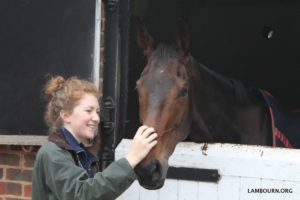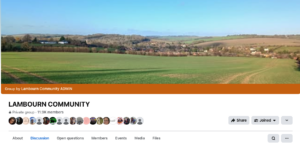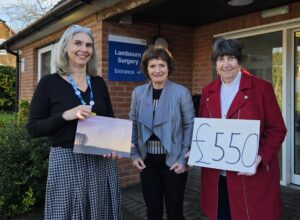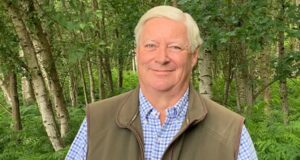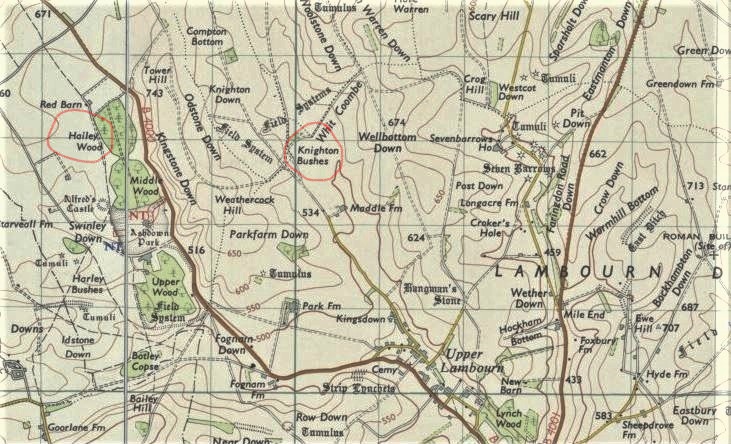
The horses and carts belonging to Mr Robert Thatcher, haulier, of Longcott, were engaged in carting coal from Shrivenham to Lambourne on Tuesday the 18th January 1881, the day of the snowstorm. The horses and carts were in the charge of Thomas Patient, aged 25, and who had been in the employ of Robert Thatcher for 15 years. Patient had with him William Goddard, a strong hardy looking young man aged 19, Thomas Daniels, 16, and Robert Thatcher’s son a boy aged 11, who in the morning obtained his father’s permission to go with the horses.
The following statements will reveal the hardships and intense sufferings the poor fellows must have endured and also the presence of mind and noble conduct of Patient throughout the trying time.
Lost in the blinding snow:
Extract taken from the Faringdon Advertiser January 1881
Thomas Patient says:- ‘We left Shrivenham Station in the morning and reached Lambourne safely. We left there about three o’clock for Longcott by way of the Maddle Road and when about by Knighton Bushes we lost our way in the blinding snow. Finding it impossible to get along with the carts we took the horses out and tied them together. I then took the boy Thatcher on my back, Daniel’s led the horses and Goddard, almost worn out, followed us.
We struggled on as best we could until near Honey-bunch-Hill where we became blocked by the snow. I then took young Thatcher off my back and nursed him in my arms but he soon died. One of the horses became exhausted and fell down. Goddard could not then stand and I left the body of Thatcher with Daniels and went to try and get help. I then slid down the bank through the snow and came to a road but did not know where I was, being almost exhausted and blinded by the snow driving in my face.
I went along the road and at last I saw a wood, which I thought, must be Hailey wood by Ashdown Park. I then found out Mr Jones’s house, the head keeper. This was about one o’clock; he at once got up and called his neighbours James Alexander, James Beckett, and Charles Jones. He gave me some refreshment and then we all started to find the others. When we got to them Goddard was dead and two of the horses. We managed to get two of the horses with Daniels and the body of young Thatcher to the keeper’s house. We undressed Daniels and put him to bed in an almost insensible state. When I felt the heart of the fire I was in great pain and soon became insensible, my clothes were frozen on me and had to be cut and pulled to pieces to be got off. I was then put to bed and with the lad Daniels received every kindness and attention.
The keeper and the men afterwards went back and found the other horse had died, they then took the body of Goddard to the house. The next day I was so bad from exposure and fatigue having carried the boy a long way and being knocked down several times by the horses, I could not move, but the lad Daniel’s began to recover.
Thomas Daniels said that Patient carried the boy on his back for more than two hours before he died. After Patient had gone, William Goddard fell down from exhaustion. I picked him up but he fell down again and I could help him no further. I about half-an-hour he died. Goddard had on a topcoat. I kept myself warm by keeping close to the horses but Goddard was some distance away from them. Afterwards I became very ill myself and on Patient returning I was carried to Ashdown more dead than alive. When at Lambourne we had some bread and cheese and a quart of beer amongst us all.
Mr Jesse Jones, gamekeeper to Lord Craven, at Ashdown Park says:- I was called up about one o’clock in the night of Tuesday by hearing cries for help. I went down and found Patient. I took him in and gave him some whisky which revived him as he was nearly overcome by cold and exhaustion. I called up some neighbours and we all went with Patient to Knighton Bushes. We found William Goddard and the boy Thatcher frozen to death but Daniels was still alive though very ill. We took him with Patient and the boy’s body to my house, the five horses were then alive. On going back for Goddard’s body we found one horse dead and two others died shortly afterwards. We conveyed Goddard’s body to my house. I gave Daniel’s some whisky which possibly saved his life. When at my house we had some difficulty in getting him round although we rubbed him for two hours.
Much sympathy is evinced in the neighbourhood for the friends of the two who perished and also for the survivors.
Liz Beard 2008
